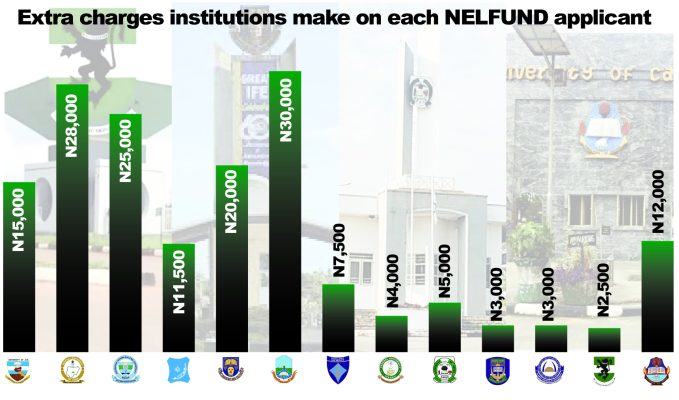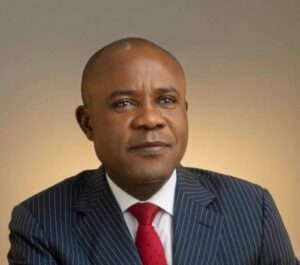
FUTA, MAU admit to duplicate payments, pledge refunds
ABU, UNN, LASUED silent as accusations mount
NELFUND disbursed N50bn to over 300 institutions
Fund accuses institutions of withholding refunds, concealing payments
At least 51 higher institutions across Nigeria have been implicated in a growing scandal over illegal deductions from student loans disbursed through the Nigerian Education Loan Fund (NELFUND).
Findings by The Guardian reveal that several institutions have been collecting inflated fees—ranging from N3,500 to N30,000 per student—from funds meant to cover actual tuition, while others have failed to refund students who had already paid before loan disbursement.
Institutions alleged to be involved include the Federal University of Technology, Akure (FUTA); Modibbo Adama University, Yola (MAU); Ahmadu Bello University (ABU), Zaria; University of Nigeria, Nsukka (UNN); Lagos State University of Education (LASUED); and others across federal and state universities, polytechnics, and colleges of education.
Students from various institutions report discrepancies between NELFUND-approved tuition rates and the actual amounts charged.
At UNIJOS, students were billed between N145,000 and N150,000 instead of the N130,000 approved, resulting in excess charges of up to N20,000.
Federal University, Lafia, listed N148,500 on loan dashboards—N28,500 above the N120,000 benchmark.
Similar overcharges were reported at ATBU, BUK, OAU, NDU, FUOYE, UNILORIN, and others, ranging from N2,500 to as much as N30,000 per student.
In some cases, students who had already paid fees before receiving loan disbursements have struggled to secure refunds. At Taraba State University, for example, a student said only N57,000 of N120,000 was refunded. At the University of Calabar, students must reportedly pay N12,000 for an invoice before any refund is processed.
While some institutions have acknowledged the discrepancies and promised refunds, others have yet to respond.
FUTA’s Director of Corporate Communications, Adegbenro Adebanjo, admitted to duplicate payments and blamed the delay on disbursement logistics. He said refunds would be made in batches and tied to a verification process.
At MAU, spokesperson Muhammad Nur confirmed about 300 affected cases and said the issue wasn’t unique to the university.
Yaba College of Technology, however, denied the allegations outright. Its spokesman, Adams Adekunle, said the payment purportedly made to the institution is still undergoing verification by the Central Bank of Nigeria (CBN).
NELFUND and the National Orientation Agency (NOA) have condemned the actions of the institutions, calling them “deceptive and unethical.” The agencies accused schools of deliberately withholding information and refusing to notify students of disbursements made on their behalf.
NELFUND Managing Director, Akintunde Sawyer, threatened legal action, stating that such actions compromise the goals of President Bola Tinubu’s education reforms, which are grounded in equity and transparency.
Sawyer noted that some schools received funds but failed to credit students’ accounts or acknowledge the payments, creating confusion and financial strain for beneficiaries.
The National Association of Nigerian Students (NANS) has launched an investigation into the matter. Its president, Olushola Oladoja, confirmed that the body will engage NELFUND and other stakeholders to ensure accountability.
Activists like Omole Ibukun of the Creative Change Centre criticised the entire structure of the scheme, claiming it has been hijacked for institutional profiteering. Ibukun proposed that the federal government introduce free education, democratise school governance, and institute student oversight committees with access to institutional financial records.
“This is a betrayal of the principles of accountability that should be exemplified by our tertiary institutions,” Ibukun said. “Instead of empowering students, the scheme has been turned into a corrupt venture.”
He added that the concealment of disbursement information not only threatens the academic future of students but also hinders public scrutiny of the loan programme’s effectiveness.
Since inception, NELFUND has disbursed over N50 billion to about 300 institutions. In 2024, 128 institutions received payments; in 2025, the number grew to 171.
The agency noted that some schools still demand full tuition payments from students despite already receiving loan disbursements on their behalf. This has led to calls for a review of the current disbursement structure—with many now urging NELFUND to remit funds directly to students instead of institutions.
As pressure mounts from stakeholders, watchdogs, and the public, expectations are high that regulatory bodies—including the EFCC—will step in to probe the alleged exploitation and bring culpable institutions to book.






